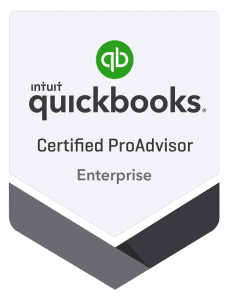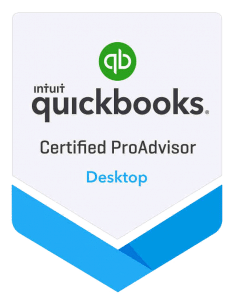Running a business in San Antonio comes with its share of excitement and challenges. One area that can trip up even seasoned business owners is bookkeeping. It’s easy to assume everything’s in order, but the truth is, hidden bookkeeping mistakes can sneak in and create bigger problems down the line.
Whether it’s a small unrecorded payment or an expense categorized wrong, errors like these can add up. Left unchecked, they can lead to penalties, cash flow issues, or even damage to your business reputation. That’s why understanding how to spot and fix them early is key to staying ahead.
So how do you reduce the risk and keep your books clean? The first step is knowing what could go wrong. Once you understand where mistakes commonly happen, you can start building better systems that catch errors early and keep your business on solid ground.
Common Types of Hidden Bookkeeping Mistakes
Every business is different, but many bookkeeping mistakes happen for the same reasons. Here are five of the most common errors that can silently disrupt your books:
– Incorrect Categorization of Expenses
Putting an expense in the wrong category might sound like a small thing, but over time it can snowball. Misclassification distorts your financial picture, making it difficult to measure profitability or prepare accurate tax filings.
– Unrecorded Transactions
It’s easy to overlook small transactions, especially when business gets busy. But unrecorded sales or purchases throw off your bookkeeping and can leave you with misleading figures.
– Transaction Duplication
Entering the same transaction more than once inflates your numbers. It might show more income or higher costs than you actually have, leading to flawed reports and wrong decisions.
– Overlooking Bank Reconciliation
Skipping your bank reconciliations means discrepancies could go unnoticed. Reconciling regularly helps catch errors early and gives you confidence that your books match your actual cash position.
– Mismanagement of Accounts Receivable and Payable
If you’re not carefully tracking what clients owe you or what your business owes others, you might miss or delay payments. This affects your cash flow and risks straining vendor or client relationships.
Being aware of these errors gives you a clearer picture of your finances and makes it easier to run your business with fewer surprises.
The Impact of Bookkeeping Mistakes on Your Business
Bookkeeping errors may seem small on paper, but their ripple effects are real. They often start quietly, then grow into larger issues over time.
Financial losses are one of the first problems. If your records aren’t accurate, your spending might be higher than you think or your revenue lower than it appears. That disconnect affects pricing, budgeting, and forecasting.
Tax penalties can follow. Filing with incorrect numbers might trigger an IRS audit or fines. Even honest mistakes on your returns can cause major stress and cost you more than getting it right would’ve in the first place.
Then there’s cash flow. Inaccurate records can misrepresent how much money is going in or out. You might think you’re in a good spot—until a big bill hits and your account can’t cover it.
Lastly, there’s the reputation piece. Late payments or bounced checks can make vendors and clients question your professionalism. That sort of damage isn’t always easy to repair, even if your services are strong.
How to Identify and Prevent Bookkeeping Mistakes
The right systems and habits make all the difference. Whether you’re running a small shop or a growing company, these practices can help keep your bookkeeping clean.
1. Perform Regular Audits and Reviews
Set aside time at least once a month to review your books. Compare invoices, receipts, and reports to make sure everything lines up. These reviews make it easier to spot errors early and correct them before they affect your reports.
2. Use Bookkeeping Software
Software like QuickBooks can support accuracy by flagging missed entries, duplicate transactions, or unusual activity. These tools help simplify your recordkeeping, but they work best when they’re used in tandem with a hands-on review.
3. Hire a Professional Bookkeeper
When managing finances starts taking too much time or becomes confusing, bringing in a professional is often the right move. A bookkeeper with experience can take over the day-to-day and free you up to focus on actually running your business.
These steps don’t just prevent mistakes—they help you keep a tighter grip on your finances overall, so you can make better decisions and spot opportunities in real time.
When to Seek Professional Help
Sometimes the signs that you need help are clear. If bookkeeping tasks are piling up or causing stress, it’s a good time to reevaluate. Here are some indicators your business might benefit from outside support:
– You’re behind on entering receipts or invoices
– Tax time brings anxiety instead of confidence
– Reports are confusing or show figures that don’t add up
– You’re unsure how much money is really coming in or going out
– You’re making frequent adjustments to fix past errors
These challenges are common, especially as a business grows. What matters is recognizing them as signals, not failures. Bringing in a professional can save you time, energy, and money in the long run.
Ensuring Financial Health for Your San Antonio Business
Strong bookkeeping habits support informed decisions. Knowing where your money is going helps you build a business that grows with stability instead of stress.
Start with clear processes. Have a system for tracking income and expenses, reviewing your records, and updating your books regularly. Stick to monthly check-ins so it doesn’t become a last-minute scramble before tax season. Train your staff on the basics of keeping receipts, using bookkeeping tools correctly, and flagging any questions early. Everyone on your team plays a role in keeping records clean.
Bring in help when needed. Whether it’s cleanup after a backlog or ongoing support, professional bookkeepers can get your systems running smoothly. In San Antonio, some business owners rely on this help for peace of mind alone—freeing them up to focus on operations and growth instead of spreadsheets.
The goal isn’t just clean books. It’s financial clarity. When you know your records are reliable, you spend less time second-guessing and more time building a business that lasts. If you’re ready to stop second-guessing your records and avoid common errors, take a closer look at how Cloud Bookkeeping can help you steer clear of bookkeeping mistakes in San Antonio and keep your business running with fewer surprises.






